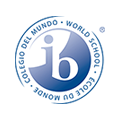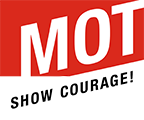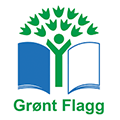Service and Action Policy
Service and Action AIS
What constitutes service and action at Asker International school?
“How wonderful it is that nobody need wait a single moment before starting to improve the world.” Possibly Anne Frank
As an IB school, AIS emphasises the importance of responsible, thoughtful attitudes towards our local, national and global communities. AIS aims to offer all students the opportunity and the power to choose their actions, and to reflect on them in order to make a difference to themselves, and the world.
Action
Action is a part of who we are. If we want to change the world we need to start with changing ourselves. If we want children to make a difference in the world we need to help them personalise the action they take, and understand that it is not just a mandate from their teachers and parents, but a life long mindset they develop. Taking action can happen at any age and may be inspired by a learning experience in the curriculum; from a homeroom project; from a student’s own initiative or from someone/an organisation outside of AIS. It’s all about how we as parents, educators, and the community, support children and youth as they begin the learning journey towards becoming adults that are change agents!
Service
Service is an unpaid and voluntary exchange that has a learning benefit for the student. The rights, dignity and autonomy of all those involved are respected.
Guidelines for service projects
1. The service involves time and personal energy as opposed to money.
2. The service benefits organizations, areas or individuals with a legitimate, not-for-profit need.
3. The service has an impact outside one's family and household.
What are the learning outcomes for service and action as prescribed by the IB?
-
become more aware of their own strengths and areas for growth
-
undertake challenges that develop new skills
-
discuss, evaluate and plan student initiated activities
-
Persevere in action
-
Work collaboratively with others
-
develop international mindedness through global engagement, multilingualism and intercultural understanding
-
consider the ethical implications of their actions
Primary Years Programme
How is action monitored in the PYP?
-
Action is not officially monitored in the PYP program at present.
-
All student initiated action is recognised and celebrated by staff and students.
-
Central ideas and lines of inquiry should lead the student to naturally take action.
How is action supported by the PYP curriculum?
-
Action is one of the five essential elements in the PYP curriculum
-
In order to understand what action is in relation to the school context and within the PYP, school practitioners must examine their own beliefs and personal/professional involvement with taking action.
-
PYP schools develop a culture where all learners have the opportunity and autonomy to act, to decide on their actions, and to reflect on these actions.
-
The teacher provides the environment and provocation for action to take place.
-
Successful inquiry leads to responsible action initiated by the student as a result of the learning process (this point has implications for the exhibition which is the end product of the PYP curriculum journey).
-
Action can take different forms with a range and balance of teacher and student initiative.
-
When individuals are engaged in relevant, significant and challenging learning, action will happen.
-
Self-initiated action occurs when the learner is a problem-finder as well as a problem-solver.
-
When individuals understand the central idea, they should naturally be lead to action.
-
Individuals can learn and assess the understanding, knowledge, skills and attitudes that are required to take action.
Middle Years Programme
How is service and action monitored in the MYP?
-
Approval of service signed by Service Tutor
-
Reflections on Managebac to showcase service
-
Photo / Video uploaded on Managebac to show progression
-
Interaction with Service Tutor relating to progress of service / action
-
Service Tutor to write brief comment on Managebac
What must the reflections / journals contain?
Each form of service learning must have at least 7 - 10 journal entries (dated) throughout the service. Photos / film can also be used as evidence. Students must also answer the probing questions that are given in Managebac. These can be either answered within the journals or on a separate document.
How is service and action supported by the coordinator and mentors in the MYP?
-
Mentors monitor students online logs and meet with students twice termly, or more should needs dictate
-
Parental presentations (yearly)
How is service and action supported by the MYP curriculum?
There are three types of service learning in the MYP: Curriculum Based; School Community Based; and Community Based. Curriculum based service learning can either be teacher driven or student driven.
Curriculum Based Service Learning (teacher or student driven)
Students taking part in a form of service / action that uses a knowledge / skill that they have acquired in one of their subjects. This may be done in / out of school
Examples:
-
Taking a Basketball club during lunch times after completing a Basketball Unit
-
Tutoring younger students in subject related topics
-
Organising a group of younger students to help create a mural in the school using skills picked up in Art lessons
-
Create a performance with other students using skills acquired from performing arts
-
Test air, soil or water quality levels for the local area using skills picked up from Science lessons.
School Community Based Service Learning
Taking part in a form of service / action during school hours. This could be linked to duties, maintenance, general housekeeping of the school etc.
Examples:
-
Restocking the First Aid Kit
-
Creating / editing videos of House Competitions
-
Maintaining / controlling the lost property
-
Recycling Warriors
Community Based Service Learning
Taking part in a form of service / action outside of school hours in the local community.
Examples:
-
Planning and putting on public forums / creating awareness on topics of interest or local needs in the community Eg: Environmental, Animal, People with special needs etc
-
Volunteering at a homeless shelter, retirement village
-
Helping to rejuvenate a local habitat
-
Conducting art/music/dance lessons for youths in the community
-
Assist with community events
What are the Service and Action requirements for each grade in the MYP?
Grade 6
Students must engage in curriculum based service learning (teacher driven) 3 times throughout the year.
Example:
-
Under 8’s Day
-
Peacelympics
-
Chinese New Year
Grade 7
Students must engage in curriculum based service learning (teacher driven) 3 times throughout the year, and:
1 Community based form of service learning. 5 hours min (student driven)
Or
2 School community based forms of service learning: 2 and a half hours min (student driven)
Grade 8
1 curriculum based form of service learning (teacher driven) 3 hrs min
1 school community based form of service learning (student driven) 5 hrs min
1 community based form of service learning (student driven) 5 hrs min
Grade 9
1 curriculum based form of service learning (student driven) 3 hrs min
1 community based form of service learning (student driven) 5 hrs min
1 school community based form of service learning (student driven) 5 hrs min
Grade 10
1 curriculum based form of service learning (student driven) 3 hrs min
1 community based form of service learning (student driven) 5 hrs min
1 school community based form of service learning (student driven) 5 hrs min
School Community Based Service Examples:
-
Organise Library at lunchtime
-
PE Clubs
-
SFO activities





